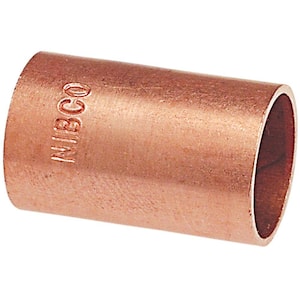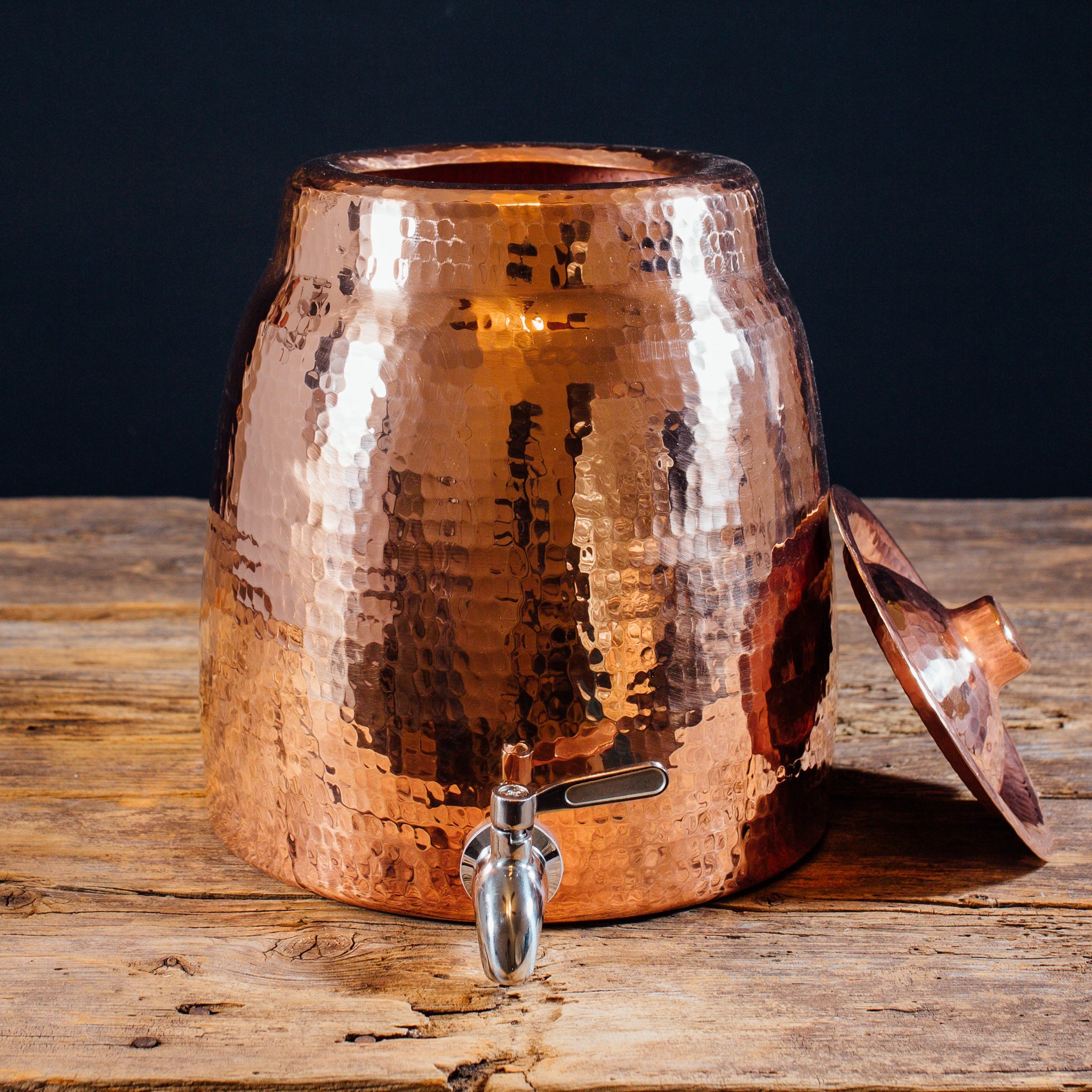Revealing the Health And Wellness Benefits of Using Copper Products in Everyday Life
Revealing the Health And Wellness Benefits of Using Copper Products in Everyday Life
Blog Article
Exactly How Copper Products Add To Sustainable Practices in Different Markets
In renewable power systems, for example, copper improves the functionality of solar and wind innovations, while its application in building lessens waste through longevity. As industries look for to embrace even more lasting techniques, the duty of copper could show critical in achieving environmental goals.
Copper in Renewable Resource
Copper plays an essential function in the innovation of eco-friendly power technologies, functioning as an essential conductor in different applications. Its remarkable electric conductivity and resistance to corrosion make it a perfect material for electric wiring, which is important in solar panels, wind turbines, and power storage systems. In solar photovoltaic systems, copper is made use of in the interconnections and circuitry, allowing reliable power conversion from sunlight to power.
In wind power, copper is important to the generators and transformers that transform kinetic power into electric power, guaranteeing optimal performance and integrity. The demand for electric vehicles (EVs) is enhancing, with copper being an essential part in batteries, electric motors, and billing framework. The transition to EVs significantly boosts the demand for copper, as these lorries normally utilize four times more copper than standard interior combustion engine automobiles.
As the world seeks to alleviate climate adjustment and transition to lasting power resources, copper's duty becomes significantly essential. The product not only boosts the effectiveness and durability of renewable resource systems yet also supports the more comprehensive goal of decreasing greenhouse gas emissions and promoting a lasting future.
Eco-Friendly Building Products
Over the last few years, there has been a remarkable shift in the direction of the adoption of eco-friendly construction materials in action to growing environmental problems. This adjustment is encouraged by the need for sustainable options that minimize ecological impacts while maintaining architectural integrity and aesthetic charm.
Copper, known for its toughness and recyclability, has arised as a principal in this market. It can be utilized in roofing, pipes, and electric systems, adding to power performance and minimizing waste. Copper's long life suggests fewer replacements over time, additional boosting its sustainability profile.
In addition, products such as bamboo, recovered wood, and reused steel are getting popularity. These options not only supply minimized ecological influence yet likewise advertise source preservation. As developing codes significantly highlight sustainability, building contractors and engineers are integrating these products into their projects, promoting advancement in style.
The boosting fostering of green building and construction products mirrors a more comprehensive dedication to sustainability in the developed atmosphere. By focusing on these products, the building market can substantially minimize its carbon footprint, straighten with regulative standards, and sustain a much healthier environment for future generations. This fad notes a pivotal action towards an extra sustainable future in building and construction.
Copper's Duty in Healthcare
Current researches have highlighted the considerable duty of copper in medical care setups, particularly due to its antimicrobial properties. Copper surfaces have actually been revealed to lower the visibility of microorganisms, consisting of viruses and microorganisms, by approximately 99.9% within a brief duration. This impressive effectiveness makes copper an important material for high-touch surfaces in health centers, such as doorknobs, bed rails, and IV posts, therefore adding to enhanced infection control procedures.
In enhancement to its straight antimicrobial results, copper also contributes in the broader context of medical facility sustainability (Copper Products). By incorporating copper right into medical equipment and home furnishings, medical care centers can reduce the occurrence of healthcare-associated infections (HAIs), which not just improves client outcomes yet also decreases the costs related to extended healthcare facility remains and extra therapies
Furthermore, copper's toughness and recyclability line up with sustainable methods, enabling accountable source monitoring. As medical care systems significantly focus on both individual security and ecological stewardship, the combination of copper products is ending up being more prevalent. This dual advantage underscores copper's essential contribution to a healthier, more secure, and more lasting health care atmosphere.
Sustainability in Transportation

In addition, copper's resilience and rust resistance add to the long life of transport framework (Copper Products). In find out this here rail systems, for example, copper components enhance the reliability and performance of signaling and power systems, essential for reducing delays and power consumption. In addition, copper's role in renewable resource systems, such as solar and wind, supports lasting transportation options by giving clean energy for electric transportation options
Investments in copper modern technology not only foster sustainability yet also promote economic development and task creation in environment-friendly markets. As sectors aim to fulfill rigid environmental laws, the application of copper products in Visit Website transportation emerges as a pivotal approach in attaining sustainability objectives and promoting a cleaner, much more reliable future.
Copper and Circular Economic Situation
As the world increasingly embraces sustainability, the function of copper in the circular economic situation becomes ever before more considerable. Copper's intrinsic properties-- such as its longevity, recyclability, and conductivity-- placement it as a crucial material in a resource-efficient economic situation. The circular economic climate aims to lessen waste and optimize source use via recycling and reusing products, and copper excels in this respect.
The steel can be recycled indefinitely without loss of quality, making it a perfect prospect for sustainable techniques throughout different markets, consisting of construction, electronics, and renewable resource. By recovering and reprocessing copper from end-of-life items, markets can dramatically reduce the demand for virgin products, therefore lowering environmental effects related to mining and handling.
Furthermore, the integration of copper into round economy frameworks not only conserves resources yet also promotes innovation. Companies that prioritize copper recycling add to a much more lasting supply chain, boosting their competitiveness while straightening with regulative needs and customer preferences for ecologically responsible items.
Final Thought
Finally, copper products dramatically contribute to lasting techniques throughout several markets. Their important function in improving renewable resource modern straight from the source technologies, advertising environment-friendly building and construction products, sustaining infection control in health care, facilitating lasting transport, and embodying the principles of a circular economic situation underscores the flexibility and significance of copper. By incorporating copper into various applications, sectors can achieve better performance, reduce environmental effect, and align with global sustainability goals, inevitably fostering an extra lasting future.

Copper's outstanding conductivity makes it a favored product in electric automobile (EV) systems, boosting energy efficiency and performance. In addition, copper's role in eco-friendly energy systems, such as solar and wind, supports sustainable transport services by supplying tidy energy for electrical transportation alternatives.
Their crucial duty in improving renewable power technologies, promoting eco-friendly building and construction materials, supporting infection control in medical care, facilitating lasting transport, and personifying the concepts of a round economic climate highlights the versatility and value of copper.
Report this page